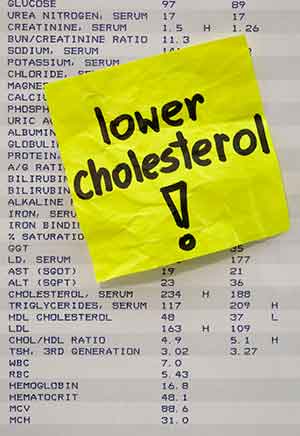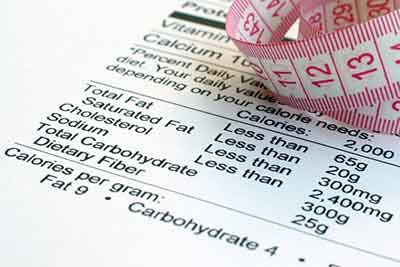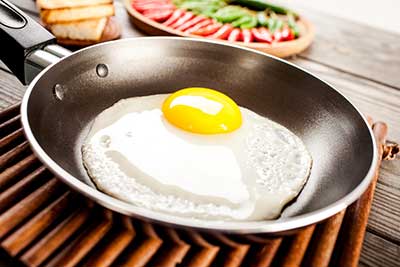 Cholesterol has been accused of some of most heinous crimes on earth. If you believe the statistics, it’s the biggest mass murderer of all time.
Cholesterol has been accused of some of most heinous crimes on earth. If you believe the statistics, it’s the biggest mass murderer of all time.
High levels of this demonic artery-clogger will lead to heart disease and ultimately, a premature liaison with the scythe-wielding A-hole, widely known as Death (not to be mistaken for the local farmer, if he still uses a scythe, who might just be called Jim or Bob…or Jim-Bob, and likely has nothing to do with your demise).
Cholesterol is a misunderstood subject, largely because those trustworthy folks that suck our blood and stick fingers up our bums – aka doctors – do most of the confusing.
To start with, it’s not even cholesterol that they are talking about half the time. It’s lipoproteins.
You have 2 main lipoproteins, which together with some other stuff make up your ‘total cholesterol’ count.
HDL and LDL – Good and Bad
 HDL – High Density Lipoprotein – is called “good cholesterol” by doctors and has been for yonks. This is because they think you are too thick to comprehend anything deeper than cartoon style good-guy-bad-guy scenarios.
HDL – High Density Lipoprotein – is called “good cholesterol” by doctors and has been for yonks. This is because they think you are too thick to comprehend anything deeper than cartoon style good-guy-bad-guy scenarios.
Either that, or (and sadly this is likely the one) doctors generally refer to the Big Book For Doctors, and haven’t got the time or the inclination to come up with different material for their less sheep-like patients.
Lipoproteins are carriers for molecules, including cholesterol. Cholesterol, being an organic lipid molecule itself, and one which is essential for life, is involved in a cycle.
HDL transports cholesterol that is lying around to the liver to be wasted or recycled.
The cells in your body use cholesterol for a range of things like membrane stability, which lets them operate without building a cell wall. In turn this means they can change shape – a key skill for many operations and ultimately, human life.
It’s LDL – Low Density Lipoprotein – that carries cholesterol to the cells, but when the cell fills up, it switches its LDL receptor sites off.
Here’s the problem: when there’s LDL kicking about but all the cells are rejecting it, they are oxidized, and can end up as gunk on the inside of your artery walls.
That gunk is called plaque, and that’s the stuff that can eventually lead to constricted blood vessels and heart disease…and Jim-Bob’s somber lookalike coming at you with his pointy farming tool.
It’s All About Balance
 All of that sounds pretty sad, but the problems only occur when your ratios of HDL and LDL are out of balance.
All of that sounds pretty sad, but the problems only occur when your ratios of HDL and LDL are out of balance.
According to the health organizations who recommend such things, the ratio of HDL to LDL should be no less than 5:1.
Having said that, they’re the same organizations that made dietary cholesterol all but illegal for the last 40 years, which has turned out to be a complete fallacy and led many egg-white-omelette-scoffing yuppies to the doctor’s office because of low cholesterol. Irony is found in an egg yolk apparently.
So, take that balance for what it is; another educated stab in the dark. The reason I say that is because there doesn’t appear to be much evidence of a correlation between cholesterol and heart disease, despite the medication accounting for billions of dollars in the giant pharmaceutical industry.
Still, balance is the secret to overall health, and you should be encouraged to promote it within your own habits, diet included.
What’s The Advice?

Generally speaking, dietary cholesterol should not be avoided, but it’s a good idea to have annual blood tests to see whether your blood lipids are all within normal ranges.
It’s one thing to say that there is not much remarkable evidence linking cholesterol to heart disease, but these ‘normal’ limits have been determined from the bell-curve of entire populations, so it’s a good idea to stay within them.
Heathy fats include Omega 3 and Omega 6 which are recommended to be consumed at a 3:1 ratio. Saturated fats have also had their reputation cleaned by many systematic reviews, determining that there is no link between saturated fat and heart disease.
Trans-fats on the other hand should be avoided if at all possible. This is an ‘artificial’ fat which has been created through the addition of hydrogen to liquid vegetable oils. You’ll see “hydrogenated vegetable oil” or something similar on the food label. Steer clear if you can.
Last but not least, apart from diet, one of the best ways to protect yourself from heart disease is to engage in regular cardio vascular exercise.

Be the first to comment